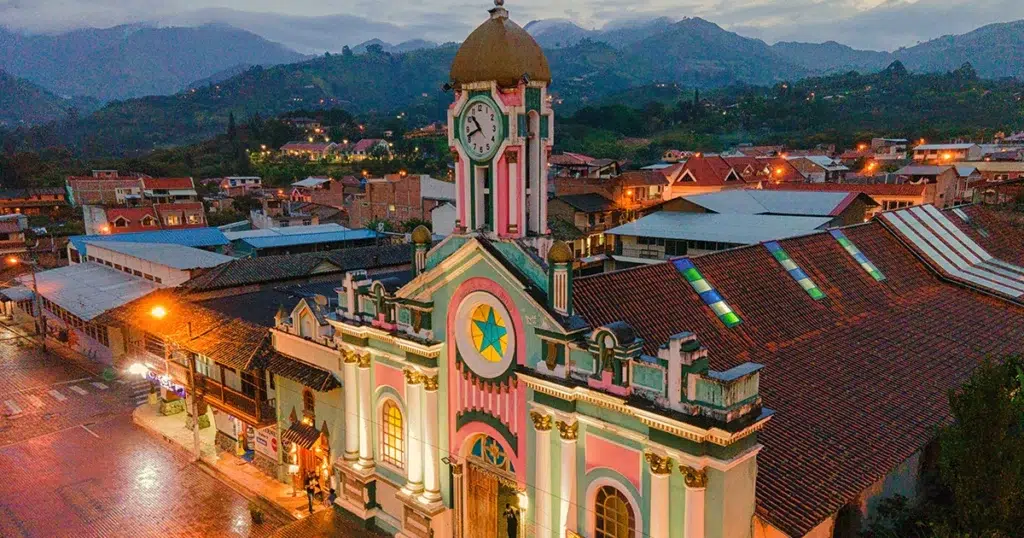Faire des affaires en Dominican Republic
- En combien de temps puis-je créer une entreprise ?
- Quel est l'investissement minimum requis ?
- Comment puis-je obtenir un financement ?
- Quelles sont les obligations légales pour créer mon entreprise ?
- Quelle structure dois-je envisager ?
- Quels conseils pouvez-vous me donner en ce qui concerne les exigences en matière de paie et de fiscalité ?
- Y a-t-il autre chose que je devrais savoir ?
En combien de temps puis-je créer une entreprise ?
As the largest and fastest-growing economy in the Caribbean, the Dominican Republic (DR) offers a highly strategic platform for regional business expansion. With investor-friendly legislation, modern infrastructure, and a young, skilled workforce, the DR is a premier destination for foreign investment and enterprise development.
Fast-Track Business Incorporation
Setting up a business in the DR can be accomplished in under seven business days with the proper documentation. The streamlined process includes:
• Choosing a legal structure (most commonly an SRL equivalent to LLC).
• Commercial name registration with ONAPI.
• Drafting and signing bylaws.
• Paying the incorporation tax (1% of capital) to the DGII (Tax Authorities).
• Registration with the local Chamber of Commerce.
• Taxpayer registration (RNC) with the DGII.
• Enrollment in the Social Security Treasury (TSS) and other labor institutions.
Quel est l'investissement minimum requis ?
There is no legal minimum capital for incorporating an SRL; however, a recommended seed capital of RD$100,000–RD$500,000 (US$1,700–US$9,000) ensures operational readiness.
For investors seeking residency benefits, the minimum investment generally starts at US$200,000, depending on the asset class (business, real estate, financial instruments).
Comment puis-je obtenir un financement ?
Investors benefit from a diverse financial ecosystem:
• Commercial banking solutions for working capital and expansion.
• Private equity and investment funds in high-potential sectors like tourism, energy, and tech.
• Government and multilateral programs (Banca Solidaria, PROMIPYME, IDB).
• Public trust and Free Zone incentives supporting export and innovation-driven ventures.
Quelles sont les obligations légales pour créer mon entreprise ?
Operating in the DR requires:
• DGII registration for tax and billing compliance.
• Mandatory affiliation with the TSS for companies with employees.
• Sector-specific licensing (health, education, tourism, etc.).
• Environmental and municipal permits as applicable.
Quelle structure dois-je envisager ?
The Dominican legal framework offers flexible structures to match various business models:
1. Sociedad de Responsabilidad Limitada (SRL)
• 2–50 partners
• No legal minimum capital (recommended: RD$100,000)
• Ideal for SMEs and family-owned enterprises
2. Sociedad Anónima (SA)
• Minimum capital: RD$30 million for classification as a large enterprise
• Designed for corporate groups and financial institutions
3. Sociedad Anónima Simplificada (SAS)
• From 1 shareholder
• Customizable governance model
• Optimal for startups and growth-stage companies
4. Sole Proprietorship
• Direct liability
• Suitable for low-risk, individual activities
Quels conseils pouvez-vous me donner en ce qui concerne les exigences en matière de paie et de fiscalité ?
Corporate Taxes
• Income Tax (ISR): 27% of net income
• Asset Tax: 1% if no income tax is due
• VAT (ITBIS): 18% on most goods/services
Payroll Compliance
• Minimum wage: RD$11,900–RD$24,990 depending on the sector
• Workweek: 44 hours
• Mandatory benefits: 14 vacation days, 10% profit sharing, year-end bonus
• Employer social contributions:
o AFP (Pension): 7.10%
o SFS (Health): 7.09%
o INFOTEP (Training): 1.00%
Y a-t-il autre chose que je devrais savoir ?
Key Investment Incentives
• Free Zones: Up to 15 years of full tax exemption for export or service operations.
• Law 16-95 on Foreign Investment: Free repatriation of profits and capital; equal treatment for foreign investors.
• CONFOTUR (Tourism Incentives Law No. 158-01) program that grants tax exemptions to tourism and real estate projects to encourage investment and development in the sector. Eligible projects can receive up to 15 years of tax benefits, including exemptions on income tax, transfer tax, VAT, and import duties.
• Law 57-07 Renewable Energy Incentives: Promotes clean energy and reduce dependency on fossil fuels with tax breaks, import duty exemptions (100% VAT), and 40% investment credit.
•Law 28-01 Border Zone Incentives
Grants 100% tax exemptions for companies operating in 7 border provinces to promote investment and job creation.
•Law 189-11 Real Estate Trusts (Fideicomiso)
Facilitates real estate and social housing projects via trust structures with tax and financing benefits.
•Law 108-10 Film Industry Promotion
Provides tax credits and exemptions for local and international film productions to develop the film sector.
• Trade Agreements: DR-CAFTA, EU, and CARICOM offer preferential market access.
• Stable macroeconomic environment: Low inflation and robust monetary policy.
•Skilled, bilingual labor force, especially in tourism and service industries
Comment Kreston peut-il développer votre entreprise ?
Sélectionnez votre type d'entreprise :
Dernières nouvelles

Perspectives du marché intermédiaire en Amérique latine
La cinquième édition de Going Global est désormais disponible et met en lumière les perspectives du marché intermédiaire en Amérique latine.

Kreston FLS annonce des services de conseil en finance d’entreprise
Kreston FLS annonce l’ajout de services de conseil en finance d’entreprise à son portefeuille, sous la direction de l’expert-comptable José Luis Madariaga Cervantes.

L’Équateur frappé par une hausse de la TVA en 2024
L’Équateur verra les taux de TVA augmenter en 2024 afin de combler un déficit de 5 milliards de dollars, dû en partie à une réduction de la production de pétrole et à une augmentation des dépenses pour lutter contre les troubles actuels dans le pays. Cette augmentation répond également à un nouvel accord de financement avec le Fonds monétaire international.
